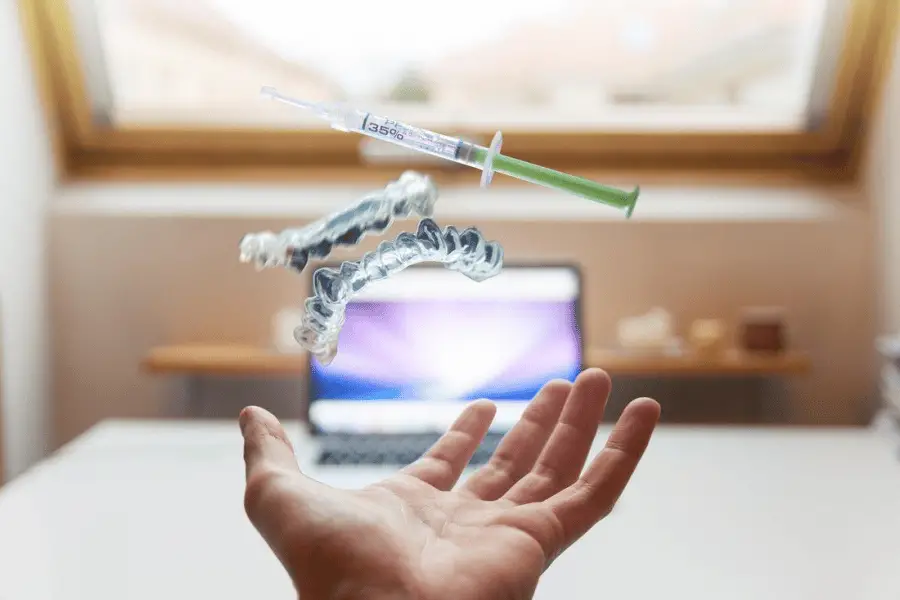Teeth whitening is one of the most desired treatments to get a bright and radiant smile. Many DIY products claim to whiten and brighten your teeth. However, there exist many myths regarding teeth whitening that need to be cleared before opting for the procedure. This post attempts to bring out the facts that dentist in Blackburn would want you to know before opting for teeth whitening.
What Makes Your Teeth Turn Yellow?
Below the enamel lies the yellow core called dentin; over time, the enamel wears due to acidic foods, grinding of teeth, scuffs, and aging. As a result, this yellowy dentin starts showing closer to the surface, giving the teeth a yellowish look. Additionally, your pearly whites may lose their shine due to stains from food products like coffee, soda, and tea removed with regular dental hygiene. Furthermore, genetics also play an essential role in determining the yellowishness of the teeth.
What Is the Procedure for Teeth Whitening?
There are two means to whiten and brighten your teeth. First, DIY kits are available over the counter, made of abrasive methods that will remove the superficial stains on the top of the enamel-like the whitening toothpaste, gum, and mouthwash. And the second method being cleaning teeth using special chemicals and bleaching agents to change the colour of the tooth by penetrating the enamel and bleaching the dentin.
Are Whitening Toothpastes Effective?
No, Most DIY kits are abrasive, and they will clean only external stains and damage the enamel and gums if not done correctly. In addition, dentists will not recommend whitening toothpaste as they have little or no effect on your teeth. Abrasive toothpaste is like sandpapers; they erode the teeth enamel.
How Good Are Whitening Strips?
Whitening strips contain chemicals like carbamide peroxide and hydrogen peroxide, which may trigger tooth sensitivity and lead to mouth sores, especially when strips contact the gums. However, whitening strips are more effective compared to toothpaste. Preferably use whitening strips based on the dentist’s advice.
Can I use hydrogen peroxide at home?
Dentists do not recommend using Hydrogen peroxide at home. They are known to cause free radical reactions when they come in contact with the living tissues. And may age living tissue. Likewise, other home remedies like using lemon juice will also hurt your enamel as acids eat away the enamel and disrupt the balance of good and harmful bacteria.
What Are the Benefits of Getting Your Teeth Professionally Whitened?
In-office teeth whitening is effective and long-lasting compared to the DIY kits available at the drug store. In addition, it is done under the supervision of the dentist and takes lesser time to achieve the results. Furthermore, the dentist can assess the type of stain and customize the treatment to the patient accordingly.
Conclusion
While many products are existing in the market, not all treatments are suitable for you. For example, most DIY treatments take much time to show results, and all they do is remove the superficial stains; the results are short-lived and harm the tooth enamel. On the other hand, in-office treatments are long-lasting, effective and show immediate results. However, suppose you consider professional teeth whitening. In that case, you should be prepared to spend more than what a DIY would cost, but the results are worth the cost.

